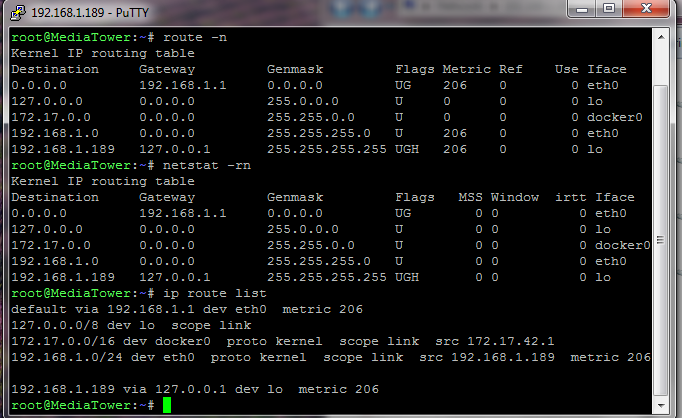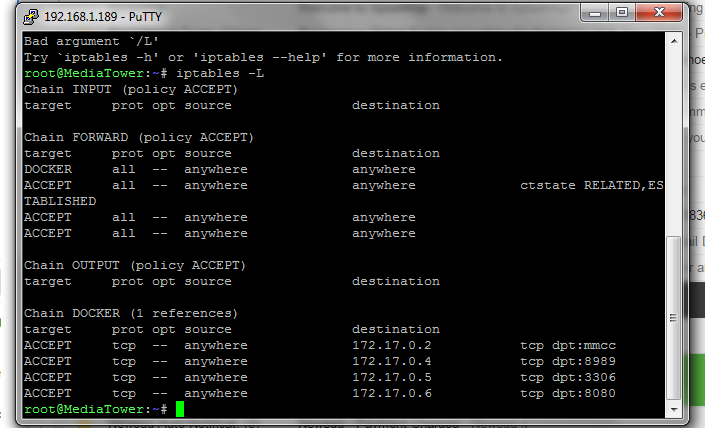
bigzaj
Members-
Posts
16 -
Joined
-
Last visited
Converted
-
Gender
Undisclosed
bigzaj's Achievements
Noob (1/14)
0
Reputation
-
Mine is primarily for Plex, but have been expanding video editing / rendering stored on this machine. The goal was reduce power and replace drives, cut out 8 hdd's and a processor and run 12 x 18TB To be honestly, I am now considering just running this setup for another year to see where AMD + Unraid end up.
-
I am running dual E5-2670v2's with 96gib ECC ram and 20x6TB WD Red in two vdevs. I am really just looking for less power consumption and more flexibility. I've lost all of my data once on FreeNAS with multiple failures. My Vdevs are RaidZ2 10 disks so effectively 4 parity drives to 16 storage drives. I can handle two concurrent disk failures per vdev. However FreeNAS is just such a steep learning curve and it's a pain moving from release to release with the Jails. I've setup friends in unRaid and it is so easy. My only concerns are really data integrity (bit-rot) and speed of opening files.
-
Not going to help this along, because I'm in the same boat. Running older gen dual Xeon on FreeNAS. Looking to make a change to unRaid for ease of use. Really looking forward to see how this thread develops. My goals are the same, upgrade to newer gen hardware but prefer enterprise reliability. Looking to expand to 150TB+, 4K UHD, ~10+ concurrent streams / transcodes (I don't allow transcoding of 4K). Would like to explore HEVC h/x265 for space savings which pushes me towards a need for GPU transcoding. Not really sure the best migration path for hardware, etc. while changing OS as well.
-
Thanks for all of the replies. I have never measured my power consumption, but with older Xeon E5v2's plus 20 drives always spinning, the heat it throws off (which I added a mini-split to help with) I have always assumed it was fairly high power consumption. My goal is really to take advantage of higher HDD density (fewer disks as mentioned above) and get a newer gen processor that allows me to take advantage of DDR4, keep the thread count up and still be more energy efficient. HW transcoding off a video card isn't a requirement, but from what I've read and seen if I try to focus on converting my media to x265 it might be required to keep the # of concurrent transcodes up.
-
Will the spin down cause a material delay in load times for media? I have a massive power / heat generating device in the closet and I really want to get more efficient across the board ideally without much performance hit.
-
I currently run FreeNAS and I am going to move to Unraid in an effort to get more energy efficient / hdd efficient. Currently running dual Xeon E5-2670v2 with 20 WD Red 6TB drives. Looking to do something more modern / energy efficient but with the same stability as enterprise grade. Also looking to add discrete GPU (e.g. P2000) to enable hardware transcoding. I am looking to start converting my 1080p library to H265 to reduce storage needs. Ideally I would be able to re-use by SC846 case, but not a requirement. My current server has about 80TB usable. I'd like to get over 200TB on less than 20 disks in the future. I have been looking at Ryzen builds due to efficiency/passmark scores, but moving away from Xeon stability has me concerned. Looking for some advice on a new processor / mobo combination that will be more efficient than what I'm using and allow me to move to Unraid. I don't have a budget really, but looking to for under $1k on mobo / processor combo.
-
I have been running FreeNAS for many years, most recently using dual Xeon 2670v2 processors. I think I am finally ready to move to Unraid for simplicity of management. I also want to start upgrading to HEVC / H265 files to reduce storage requirements. From what I have read utilizing hardware transcoding with a P2000 will be as good or better than my dual Xeon. Additionally I really want to move to a lower power / fewer HDD model. I currently use a Supermicro SC847 case with redundant 1350w PSU with 20 WD 6TB HDDs. I was hoping for some guidance. Questions: - Can I re-use this case with something like a Ryzen or will I have an issue with the redundant PSU? - Can I build a temp setup using onboard SATA to migrate to unraid then move into the SC847 using SAS? (Assuming this is a benefit of Unraid with the hardward change post build) - Are there other chassis (not Norco) that I should put on my radar if the ultimately goal is to start minimizing footprint / power?
-
Transcode remote is limited to 4mbps Transcode local is limited to 8mbps I try to utilize a NUC at home to allow for direct stream but ATV / Roku used by kids I'm not sure what the capability of the IBM M1015 is. Hoping to upgrade gradually to WD red pro 7200 rpm to improve single drive performance. Will using a cache pool 2x256gb and having plex transcode through ram help or is the CPU the bottleneck?
-
I currently run WHS with an Areca raid card in a 24bay Norco w/ 2 Raid 6 arrays (~36TB usable). I built a new server for FreeNAS, but after building an unRaid server for a friend I am having second thoughts. My primary driver for FreeNAS was attaining 20-30% parity, setting up 3x 8 drive vdevs in z2 (raid 6 ish) pooled together so that I would have 18 storage drives and 6 parity drives. However given the steep learning curve with FreeNAS relative to the simplicity of unRaid I am seriously reconsidering this plan. Use case is mediaserver + owncloud. I share this with family and can have 6-8 concurrent streams via plex. I'd like to be able to support 10 streams concurrently @ 4mbps - 8mbps (I have 1gbps internet). Two questions: 1. Is my hardware sufficient for 10 concurrent streams with Plex? 2. Will random reads from individual drives as opposed to spanning across multiple be able to support 10 streams? Hardware: Intel E3 1275 - 3.40Ghz 8 core 64gb ECC ram IBM m1015 controller Supermico X10 board Supermicro 846 24 bay case 2x256gb Samsung 850 Pro (cache now?)
-
Currently set docker apps to host as opposed to bridge mode. This resolve the issue for DNS, but the download speed is peaking at 5% of my bandwidth. Cannot get over 1.1 MB/s on a 150mbps connection. Edit-- On the network at my house with 100mbps internet i constantly achieved 12-13MB/s downloads with this box and minimal CPU impact.
-
Changed docker connection to host, updated config, then back to bridge and it fixed it. --edit-- Rebooted and the same issue presented itself.
-
I have an issue where the Dockers cannot resolve host names when in bridge mode, but can if changed to host (Sab, Couch Potato, etc.) Should I just change all to host and not worry? Is there a resolution for the DNS while in Bridge mode? [sOLVED] Changed docker connection to host, updated config, then back to bridge and it fixed it. [uNSOLVED] Rebooted and the same issue presented itself.
-
Can pull down additional dockers from the WebGui, the Dockers themselves appear to be unable to resolve DNS.
-
I tried specifying the gateway (router) as DNS server, the ISP DNS servers the router uses as well as 8.8.8.8, 8.8.4.4 and none of the above resolved the issue.
-
I built an unRAID box for a friend this weekend and set it up, etc. including docker apps: Sabnzbd, Couch Potato, Sonarr and Plex When I had it at my house, everything worked fine. When I moved it to his house (his network) all of the apps stopped resolving DNS. In Network config, with everything set to Auto, there is internet connectivity and I can ping out from the Tower to IP's but not hostnames and the apps can access the internet if I replace URL's with IP's. If I manually set DNS to 8.8.8.8 then I can ping hostnames from command prompt, but the docker apps still cannot resolve any DNS. Not sure what to do here. Any help appreciated. syslog.zip

